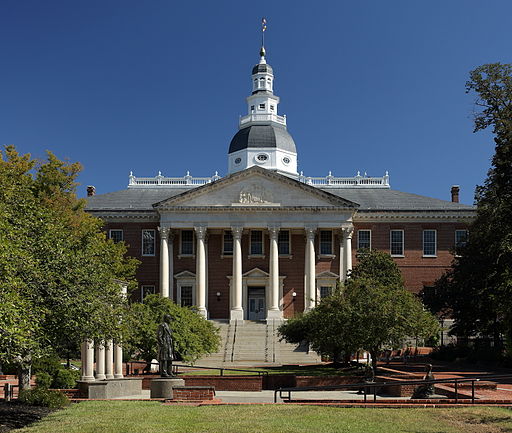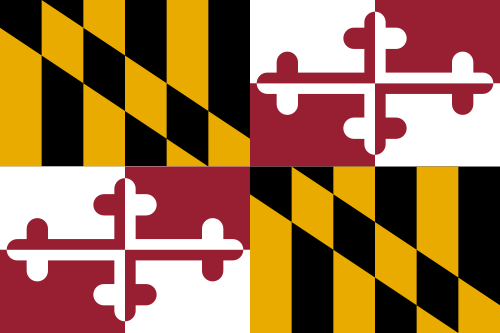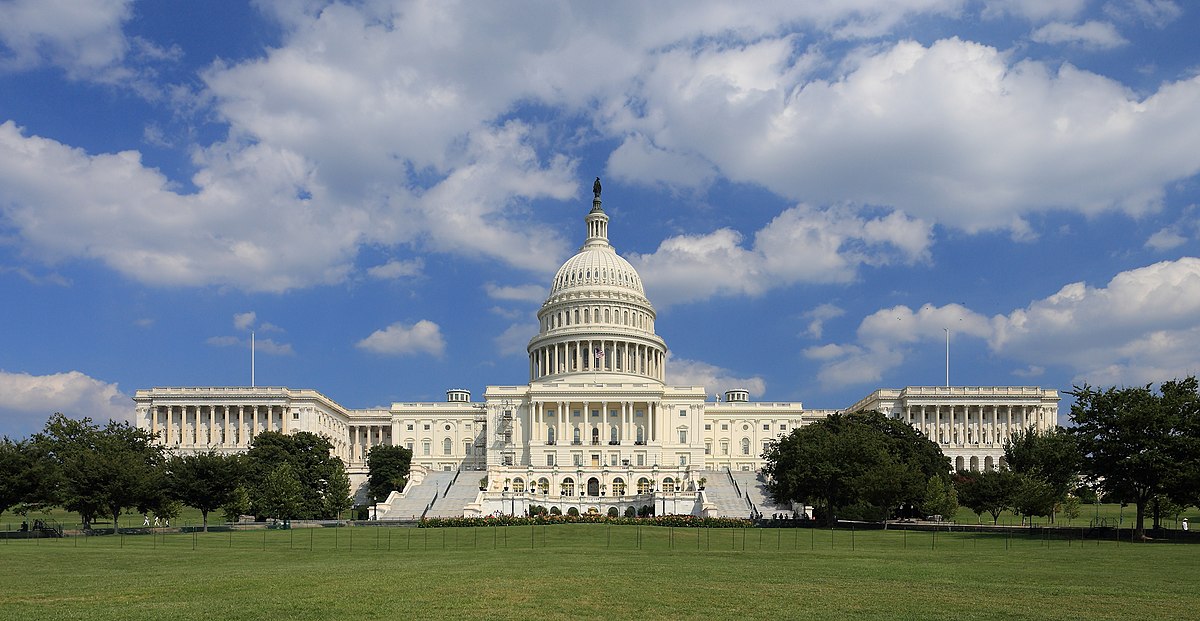Tag: maryland
-
Maryland voters to decide on changes to vacancy procedures for Judicial Disabilities Commission in 2026

The Maryland State Legislature voted to send a constitutional amendment to the Nov. 3, 2026, ballot that would change how vacancies are filled on the Judicial Disabilities Commission. The amendment would allow the chair of the Commission on Judicial Disabilities to appoint former members to temporarily fill vacancies or allow the governor to appoint a…
-
Five presidential tickets will appear on the ballot in Maryland this November

Maryland’s Nov. 5, 2024, general election ballot will feature five presidential candidates and their running mates. They are: Robert F. Kennedy Jr. withdrew from the presidential election in August, but will still appear on Maryland’s ballot. There are the same number of candidates on Maryland’s presidential ballot compared to 2020, and one more than in…
-
With certifications in Arizona and Missouri, voters in eight states will decide on abortion-related ballot measures in 2024, the most on record for a single year

Voters in eight states—Arizona, Colorado, Florida, Maryland, Missouri, New York, Nevada, and South Dakota—will decide on abortion-related ballot measures in Nov. 2024. This is the most on record for a single year. Initiatives are pending signature verification in three additional states—Arkansas, Montana, and Nebraska. Measures were most recently certified in Arizona and Missouri. On Aug.…
-
Voters in six states—CO, FL, MD, NV, NY, and SD—will be deciding on abortion in 2024, with measures proposed in five other states

Voters in six states—Colorado, Florida, Maryland, New York, Nevada, and South Dakota—will decide on abortion-related ballot measures in Nov. 2024. Initiatives are pending signature verification in five states—Arizona, Arkansas, Missouri, Montana, and Nebraska. This report provides the most recent updates on abortion-related ballot measure certifications and potential measures. Here is the status of abortion-related ballot…
-
Angela Alsobrooks (D) and Larry Hogan (R) are running in the general election for the U.S. Senate in Maryland

Angela Alsobrooks (D), Larry Hogan (R), and three other candidates are running in Maryland’s U.S. Senate election on Nov. 5, 2024. Incumbent Sen. Ben Cardin (D-Md.), who was first elected in 2006, is not running for re-election. On the state of the race, Maryland Matters’ Josh Kurtz said, “For Alsobrooks, it’s about trying to tie…
-
Maryland was the most active Democratic state in terms of new election laws in the first half of 2024

Maryland adopted 10 election-related bills in the first half of 2024, making it the most active state with a Democratic trifecta in terms of new election laws. Lawmakers adopted bills expanding protections for election officials, and created a portal intended to address election misinformation. They also adopted a new law modifying post-election canvassing procedures, including a process…
-
Sarah Elfreth won the Democratic primary for Maryland’s 3rd Congressional District

Sarah Elfreth (D) won the Democratic primary for Maryland’s 3rd Congressional District on May 14, 2024. Elfreth received 36.0% of the vote. Harry Dunn (D) finished in second place with 25.0%. Mark S. Chang (D), Michael Coburn (D), Malcolm Colombo (D), Abigail Diehl (D), Lindsay Donahue (D), Mark Gosnell (D), Terri L. Hill (D), Aisha…
-
Incumbent Steny Hoyer (D) defeated Quincy Bareebe (D), Mckayla Wilkes (D), and Andrea Crooms (D) in the Democratic primary in Maryland’s 5th Congressional District

Steny Hoyer (D) won the Democratic primary for Maryland’s 5th Congressional District on May 14, 2024. Hoyer received 70.6% of the vote. Quincy Bareebe (D) finished in second place with 11.7%. Mckayla Wilkes (D) and Andrea Crooms (D) also ran in the primary. The Longview News-Journal’s Matt Wynn wrote that the challengers were “taking on…
-
April McClain-Delaney (D) defeated 15 other candidates in the Democratic primary in Maryland’s 6th Congressional District

April McClain-Delaney (D) won the Democratic primary for Maryland’s 6th Congressional District on May 14, 2024. McClain-Delaney received 39.1% of the vote. Joe Vogel (D) finished in second place with 26.7%. Peter Choharis (D), George Gluck (D), Geoffrey Grammer (D), Ashwani Jain (D), Lesley Lopez (D), Tekesha Martinez (D), Stephen McDow (D), Mohammad Mozumder (D),…
-
Voters in 12 states may decide on abortion in 2024, including three states where abortion is confirmed on the ballot—FL, MD, and NY

Voters in 12 states could see abortion on their ballots this year, including three states where ballot measures have been certified for the ballot—Florida, Maryland, and New York. Measures have been proposed in nine other states. This report provides the most recent updates on abortion-related ballot measure certifications and potential measures. On April 18, the…

